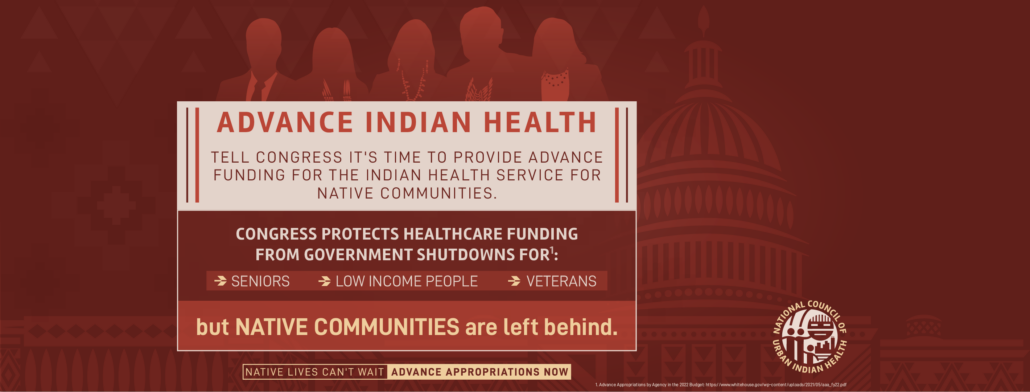There has also been strong long-standing support from Congress on this issue. On January 12, 2022, the Native American Caucus sent a letter to House Appropriations Committee Chair DeLauro and Ranking Member Granger requesting that advance appropriations for IHS for FY 2023 be included in the final FY 2022 appropriations bill, and again on June 3 requesting that, while the process of shifting IHS to mandatory appropriations is underway, advanced appropriations for IHS be included in the final FY 2023 Appropriations bill. On April 25, 2022, a bipartisan group of 28 Representatives requested up to $949.9 million for urban Indian health in FY 2023 and advance appropriations for IHS until such time that authorizers move IHS to mandatory spending, and 12 Senators sent a letter with the same requests. Last year, for the first time ever, President Biden included an additional $9 billion in advance appropriations to IHS for FY 2023 in his budget request and the Senate Appropriations Committee included an additional $6.58 billion in advance appropriations to IHS for FY 2023 in its FY 2022 Interior, Environment, and Related Agencies bill.
Back in 2014, SCIA held its first hearing on advance appropriation bill Indian Health Service Advance Appropriations Act of 2013 (S. 1570). In a House Natural Resources Subcommittee for Indigenous Peoples (SCIP) hearing held during the last Congress on advance appropriations bills H.R. 1128 and H.R. 1135, former IHS Principal Deputy Director, Rear Admiral Michael Weahkee, reaffirmed Indian Country’s repeated request for advance appropriations stating that “[t]hrough the IHS’s robust annual Tribal Budget Consultation process, Tribal and Urban Indian Organization leaders have repeatedly and strongly recommended advance appropriations for the IHS as an essential means for ensuring continued access to critical health care services. The Department continues to hear directly from tribes advocating support for legislative language that would provide the authority of advance appropriations for the IHS. The issues that Tribes have identified present real challenges in Indian Country and we are eager to work with Congress on a variety of solutions.”
On July 28, 2022 SCIP held a hearing on the Indian Health Service Advance Appropriations Act (H.R. 5549) where IHS Acting Deputy Director Elizabeth Fowler reaffirmed IHS’s support for advance appropriations stating that “We remain firmly committed to improving quality, safety, and access to health care for American Indians and Alaskan Natives. Mandatory funding and advanced appropriations are necessary and critical steps toward that goal… [I] urge the House to act on advanced appropriations through the appropriations process with or without the authorizing legislation that is the subject of this hearing.”
The U.S. Commission on Civil Rights report from 2018, “Broken Promises: Continuing Federal Funding Shortfall for Native Americans” serves as another benchmark of support by including advance appropriations for IHS as a key recommendation to the federal government to ensure greater funding stability for IHS.
Find out if your Member of Congress supports advance appropriations for IHS here.





